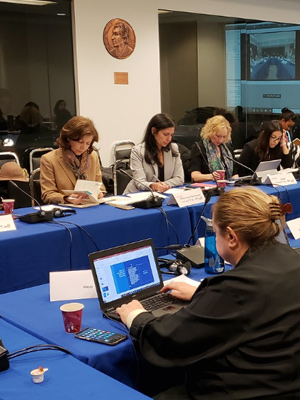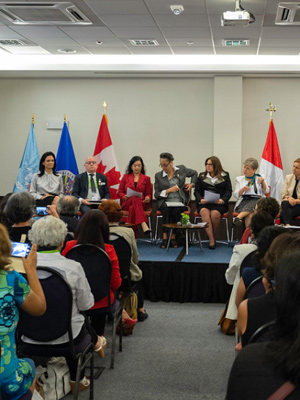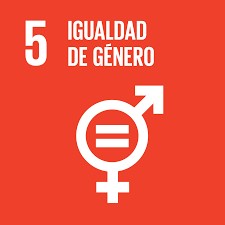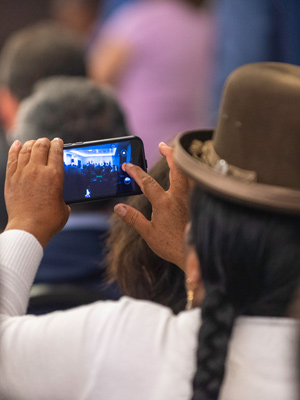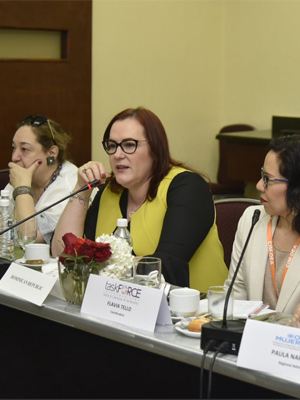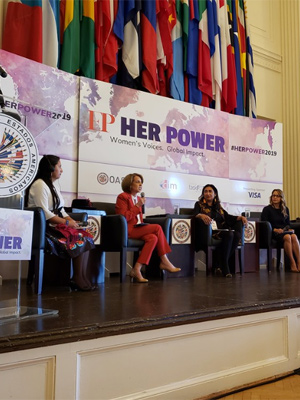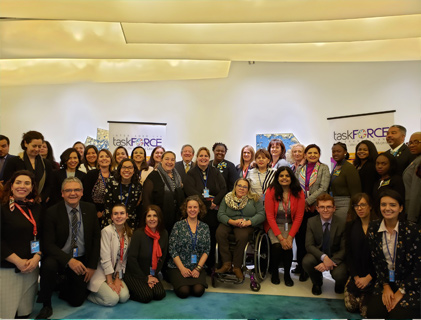- English
- Español
Women are fighting the pandemic on the front lines: They are the majority of doctors, nurses, and care workers as well as among cleaners in public and private sectors, at home through the care of children, the elderly, and the sick. Women are also leading critical efforts as part of regional and local response; private and social initiatives.
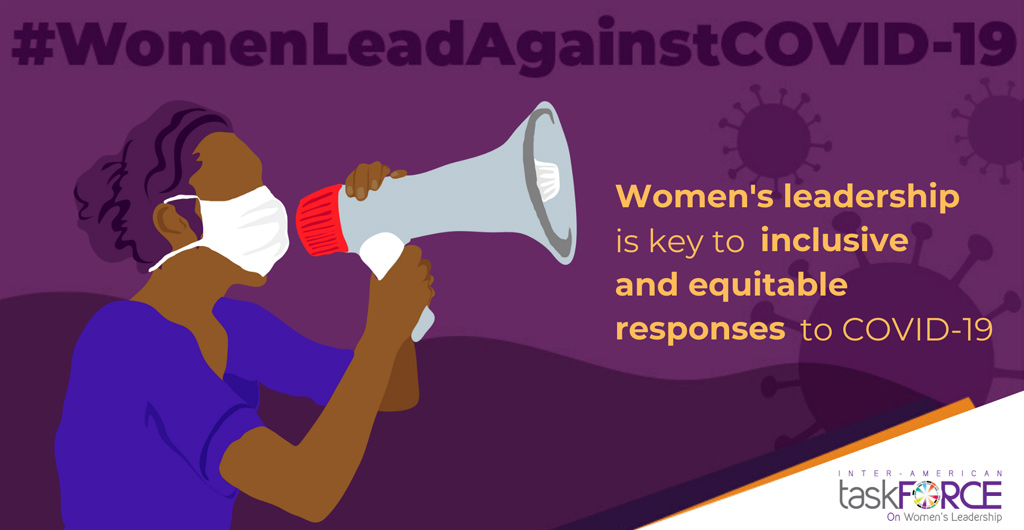
In Latin America and the Caribbean, 9 out of 10 nurses are women, and they represent 57% of doctors (IADB, 2019). However:
- Women only hold between 8% and 25% of executive positions in hospitals (Boston Consulting Group, 2019 - UNDP, 2018),
- And only 22.9% of Ministers of Health are women.
If the lack of women’s representation in decision-making represents a shortcoming of our democracies, the exclusion or undervaluing of the experience of women leaders in health, economy and gender matters is even more worrying when their absence in managing this crisis may negatively influence the way in which the specific needs of women are addressed and its effects are analyzed in terms of gender.
The participation of women, their leadership and the breadth of their perspectives show that there are no gender neutral policies and that the perspective and specific needs and interests of half the population must have their own voice, which is even more fundamental now in managing a crisis of this proportion.
We have to raise women’s voices, their experience, and leadership in decision-making to achieve a greater plurality in addressing issues and to propose better solutions to the COVID-19 crisis. To do so, we want to generate awareness and mobilize actors along four strategic lines:
1. Call for action
Equity is a state issue:
In an inter-institutional statement, we call on States of the Americas to ensure equal women’s participation in decision making during the COVID-19 crisis.
[See the Statement: Spanish | English ]
2. Evidence
Equal representation is key to effectively achieve gender equity:
The need to count on data on women’s representation in leadership positions is essential to promoting and monitoring commitments that ensure their full participation in decision-making. We are seeking to identify and highlight the existing representation gaps among decision-makers involved in the response confronting the COVID-19 crisis.
3. Knowledge
Building on knowledge in leadership and gender perspectives:
Together with experts and women leaders, we will learn on challenges faced by women's leadership in management and crisis mitigation.
May 21, 2020: webinar COVID-19: Why can women’s leadership make a difference in the response? Challenges and opportunities in the Americas and the Caribbean beyond the emergency.
4. Recognition
Women are leading several initiatives facing the COVID-19 crisis:
We will seek to elevate and highlight women’s contributions in the health sector, as well as honor women leaders who are pursuing anonymous and innovative social and community response initiatives confronting the pandemic.
[Publication: "25 Stories of Women who are Leading the Response During the COVID-19"]

